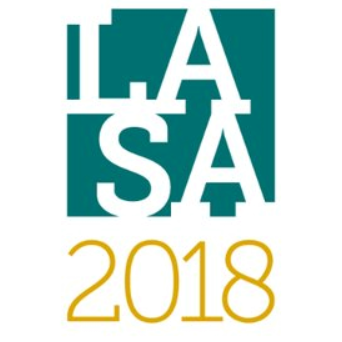Stefania Milan is the co-organizer with Emiliano Trere (Cardiff University) and Anita Say Chan (University of Illinois, Urbana-Champaign) of two panels at the forthcoming conference of the Latin American Studies Association (LASA), in Barcelona on May 23-26.
The (slightly revised) lineup:
About LASA 2018
Latin American studies today is experiencing a surprising dynamism. The expansion of this field defies the pessimistic projections of the 1990s about the fate of area studies in general and offers new opportunities for collaboration among scholars, practitioners, artists, and activists around the world. This can be seen in the expansion of LASA itself, which since the beginning of this century has grown from 5,000 members living primarily in the United States to nearly 12,000 members in 2016, 45 percent of whom reside outside of the United States (36 percent in Latin America and the Caribbean). And while the majority of us reside in the Americas, there are also an increasing number of Latin American studies associations and programs in Europe and Asia, most of which have their own publications and annual seminars and congresses.
Several factors explain this dynamism. Perhaps the most important is the very maturity of our field. Various generations of Latin Americanists have produced an enormous, diverse, and sophisticated body of research, with a strong commitment to interdisciplinarity and to teaching about this important part of the world. Latin American studies has produced concepts and comparative knowledge that have helped people around the world to understand processes and problematics that go well beyond this region. For example, Latin Americanists have been at the forefront of debates about the difficult relationship between democracy, development, and dependence on natural resource exports—challenges faced around the globe. Migration, immigration, and the displacement of people due to political violence, war, and economic need are also deeply rooted phenomena in our region, and pioneering work from Latin America can shed light on comparable experiences in other regions today. Needless to say, Latin American studies also has much to contribute to discussions about populism and authoritarianism in their various forms in Europe and even the United States today.
With these contributions in mind, we propose that the overarching theme of the Barcelona LASA Congress be “Latin American Studies in a Globalized World”, and that we examine both how people in other regions study and perceive Latin America and how Latin American studies contributes to the understanding of comparable processes and issues around the globe.
